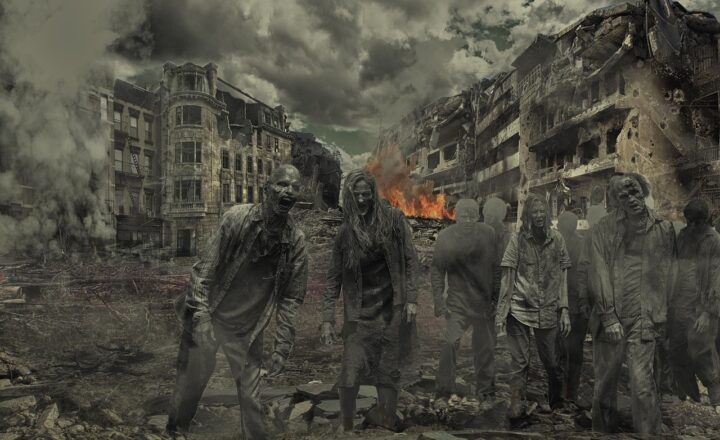The Most Controversial Song Lyrics in History and the Stories Behind Them
November 18, 2024

Music has always been a powerful medium for expression, and throughout history, certain songs have sparked intense debate and controversy due to their lyrics. From social commentary to outright rebellion, these songs reflect the complexities of human emotion and societal issues. This article explores some of the most controversial song lyrics in history and the stories behind them.
1. The Role of Lyrics in Music
Lyrics serve as the backbone of many songs, allowing artists to convey their thoughts, experiences, and societal perspectives. They can challenge norms and provoke discussions, making music a crucial tool for activism and social change. However, with this power can come backlash, leading to censorship, bans, and heated public discourse.
2. Iconic Controversial Songs
Let’s delve into some of the most notorious lyrics across different genres that have left listeners divided.
- “Imagine” by John Lennon: This song, released in 1971, invites listeners to envision a world without possessions, religion, or borders. While many see it as a call for peace, others argue it promotes a communist ideology.
- “Money for Nothing” by Dire Straits: The 1985 hit came under fire for its use of homophobic slurs. Critics argue that lyrics like these reinforce negative stereotypes and contribute to societal intolerance. The band later held discussions about the implications of their words, illustrating the power of reflection in music.
- “WAP” by Cardi B ft. Megan Thee Stallion: Released in 2020, this song sparked debates about female sexuality and empowerment. While hailed as a bold statement for women’s rights, many criticized it for being overly explicit and degrading, raising questions about double standards in the music industry.
- “F**k tha Police” by N.W.A: A clear anthem of resistance against police brutality, this 1988 song faced censorship and outright bans. Critics argue that it incites violence, while supporters maintain it’s a necessary critique of systemic racism and injustice.
- “Blurred Lines” by Robin Thicke: This 2013 song was accused of glorifying sexual assault due to its suggestive lyrics. The ensuing controversy led to lawsuits and a broader conversation about consent and sexual norms in society.
3. The Stories Behind the Lyrics
Each of these songs is more than just a collection of words; they have deep-rooted stories that highlight the context in which they were written.
- John Lennon’s “Imagine”: When Lennon penned “Imagine,” he drew inspiration from his activism and desire for a better world. His prior experiences with war and violence made him crave a society rooted in peace, but critics argue his vision is unrealistic and utopian.
- Dire Straits’ “Money for Nothing”: The song reflects the band’s observations of the music industry from a working-class perspective. Mark Knopfler, the lead singer, wrote it to capture the frustrations of blue-collar workers; however, the lyrics’ impact on marginalized communities raised significant ethical concerns.
- Cardi B and Megan Thee Stallion’s “WAP”: This anthem of sexual liberation draws from the artists’ experiences and challenges societal norms about women’s bodies. Its reception highlights the ongoing struggle over women’s rights and societal expectations regarding sexuality.
- N.W.A’s “F**k tha Police”: Inspired by the rampant police brutality faced by African American communities, this song was born from anger and frustration. N.W.A became a voice for a generation, using their platform to shed light on critical societal issues, igniting a dialogue that continues to this day.
- Robin Thicke’s “Blurred Lines”: This song brought forward discussions about consent that resonate deeply in today’s climate. Thicke faced backlash not only for the lyrics but also for the portrayal of women in the accompanying music video, leading to a reevaluation of how artists present female sexuality in their work.
4. The Impact of Controversy
The effect of controversial lyrics can be both positive and negative. While some songs have led to widespread censorship, they also ignite essential conversations about civil rights, culture, and societal values. The backlash faced often leads to greater awareness and advocacy, inspiring listeners to challenge norms and fight for change.
For instance, “F**k tha Police” has been sampled and referenced in several modern protest movements, reinforcing its relevance and impact over the years. Similarly, “WAP” opened the door for more conversations about women’s empowerment and autonomy in a male-dominated industry, prompting new artists to express their narratives freely.
5. Conclusion
Music remains an essential platform for discussion and expression. The most controversial song lyrics in history continue to resonate due to their profound exploration of social issues. Whether seen as provocative, enlightening, or problematic, these songs challenge both artists and listeners to confront uncomfortable truths and engage in meaningful dialogue.
Artists who craft controversial lyrics walk a fine line between artistic expression and societal impact, shaping not only the music industry but also the cultural landscape. It’s critical to embrace these discussions, as they encourage growth, understanding, and ultimately change in our world.
In the end, music is not just for entertainment; it’s a reflection of society, a catalyst for conversation, and an engine for change. With every lyric that stirs controversy, we’re reminded of the power of music and its ability to challenge, inspire, and transform lives.






